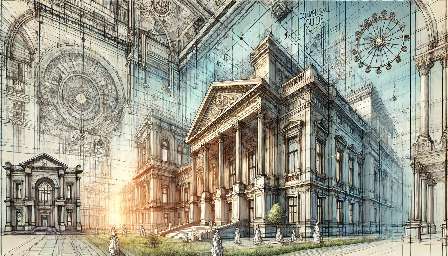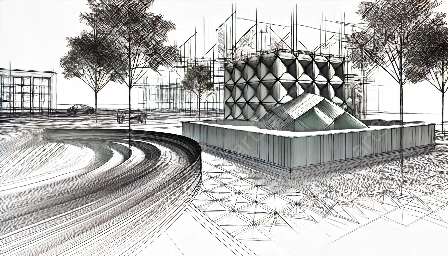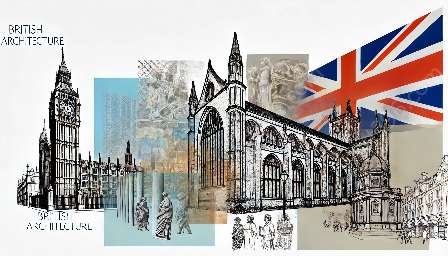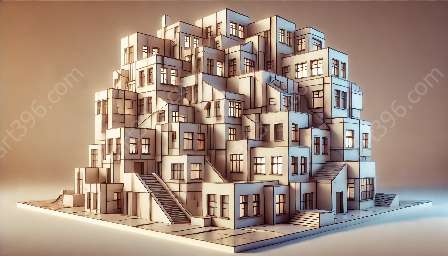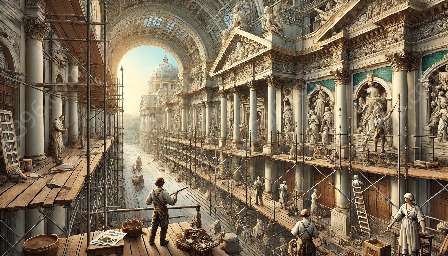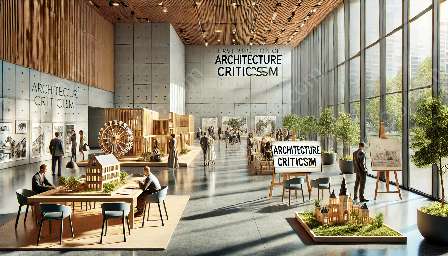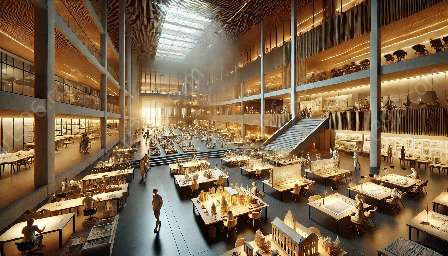Architecture is intrinsically connected to the society, politics, and culture within which it exists. Architectural theory plays a vital role in understanding and addressing the social, political, and cultural contexts in design, shaping the built environment and influencing the lives of people.
The Intersection of Architectural Theory and Social, Political, and Cultural Contexts
Architectural theory serves as a lens through which designers, scholars, and practitioners analyze and interpret the complex interactions between architecture and its broader context. It delves into the historical, sociological, and anthropological aspects of architecture, offering insights into how spaces impact human behavior, societal dynamics, and cultural expressions.
Social Context
Architectural theory delves into the ways in which design can address social issues such as equity, inclusion, and community engagement. It explores how the built environment can foster social interaction, mitigate social divisions, and promote well-being by creating inclusive, accessible, and sustainable spaces that respond to the needs of diverse communities.
Political Context
Within the political realm, architectural theory critically examines the interplay between power, governance, and the built environment. It considers the role of architecture in reflecting and shaping political ideologies, manifesting authority, and influencing urban policies and regulations. Moreover, architectural theory seeks to empower designers to engage in the political processes that shape the development of cities and regions, advocating for design strategies that prioritize the common good and environmental stewardship.
Cultural Context
Architecture is a manifestation of cultural identity and values. Architectural theory acknowledges the significance of cultural heritage, traditions, and identities in shaping the design of buildings and cities. By studying architectural theory, designers can develop a deeper understanding of how to integrate cultural narratives, symbolism, and meanings into their designs, fostering a sense of place and contributing to cultural continuity and expression.
The Influence of Architectural Theory on Design Practice
Architectural theory informs and enriches design practice by providing a theoretical framework for understanding the broader implications of architectural decisions. It encourages designers to move beyond purely aesthetic concerns and consider the ethical, social, and cultural dimensions of their work. By integrating theoretical concepts into design processes, architects can create innovative solutions that respond to the complexities of contemporary societal challenges and aspirations.
Socially Responsible Design
Architectural theory inspires a shift towards socially responsible design, emphasizing the ethical responsibility of architects to create environments that promote social justice, equity, and inclusivity. This approach encourages collaborative and participatory design processes that involve stakeholders and communities, ensuring that the built environment reflects the diverse needs and aspirations of its inhabitants.
Advocacy and Activism
Architectural theory empowers designers to become advocates and activists for change within the built environment. By critically examining the social, political, and cultural implications of architectural interventions, designers can mobilize for policy reform, community empowerment, and sustainable development, driving positive societal transformations through design activism.
The Evolution of Architectural Theory and Its Impact on Society
Architectural theory constantly evolves in response to societal shifts and challenges. As architecture reflects and shapes the human experience, the evolution of architectural theory influences societal perceptions, behaviors, and values. By engaging with architectural theory, individuals and communities can actively participate in shaping the future of their built environments, fostering a culture of critical dialogue and impactful design interventions.
Relevance in Contemporary Debates
Architectural theory contributes to contemporary debates on issues such as urbanization, sustainability, globalization, and cultural identity. It offers diverse perspectives on the challenges and opportunities presented by rapid urban growth, climate change, technological advancements, and cultural diversity, guiding designers and policymakers towards informed and holistic approaches to address these complex issues.
Conclusion
Architectural theory plays a multi-faceted role in addressing social, political, and cultural contexts in design. By critically examining the intersections of architecture with society, politics, and culture, architectural theory guides the evolution of design practice and influences the built environment, contributing to the creation of more equitable, inclusive, and culturally rich spaces that respond to the needs and aspirations of diverse communities.


